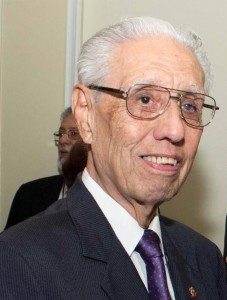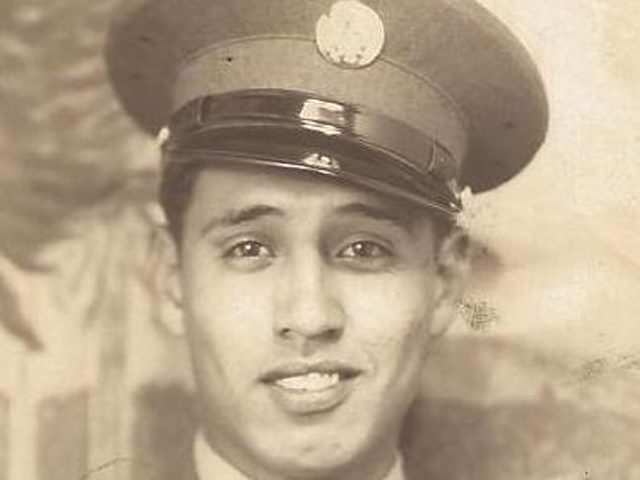After living through the Great Depression of the 1930’s, Ernest Eguia went from fighting in Normandy during World War II to fighting for the civil rights of Latinos when he returned home to Texas in 1945.
Fifty years ago, this week, of President Lyndon B. Johnson signed the Civil Rights Act of 1964, Eguia remembers what the U.S. was like before this law made it illegal to discriminate on the basis of race, color, religion, sex, or national origin.
“In 1946, I heard that a World War II veteran that was a recipient of the Medal of Honor had been denied service in a hamburger joint because he was a quote, unquote, Mexican,” recalls Eguia. “[That veteran], Marcario Garcia, sued the owner of the restaurant. When I found out about it, I joined LULAC…We raised a little over $6,000 for Marcario, and he bought a house for his mother. That’s why I joined.”
League of United Latin American Citizens (LULAC) is an organization which was founded in 1929 to advance civil rights and educational attainment of Hispanics in the U.S. When Eguia returned to Houston after his active four year military duty, achieving the rank of Staff Sergeant and receiving the Bronze Star for his heroic efforts, he became a successful salesman and store manager, but perhaps most importantly, he played a very active role in combating discrimination of Hispanics in his American hometown.
After the Marcario incident, Eguia says LULAC’s Houston Council #60 grew to more than 200 members. The organization needed large numbers to fight the amount of discrimination that was happening.
At that time in history, Eguia explains discrimination against Latinos was rampant in the U.S.
“I remember going to a church here in Houston. I was in LULAC already, and they asked me to go ask the pastor in the Catholic Church if we could rent a dance hall for a fundraiser,” remembers Eguia. “Would you believe that a Catholic priest told me to go to a Mexican church? That was in 1947 – somewhere around there.”
Eguia, whose father was from Mexico and his mother from Texas, also recalls separate drinking fountains in downtown Houston that had signs for “colored,” “whites” and “Mexicans.”
“I remember one time they would not allow a Jewish man to register in a hotel,” says Eguia.
Something else Eguia, and his fellow veterans, noticed upon returning to Houston was finding out there were no police officers or firemen who were Hispanic in Houston.
“We went after the city government, and pressed them so much, that eventually there were many young men who started joining,” says Eguia. “My brother was one of the first Hispanic firemen in Houston. His name is Leon Eguia.”
Eguia, who throughout his life has held every LULAC Council 60 officer post, including president, says although discrimination still exists, it’s hardly noticeable compared to when he was younger.

Ernest Eguia in November, 2013, at a reception commemorating the 50th anniversary of JFK’s visit with LULAC, at the Rice Hotel in Houston. (Courtesy LULAC)
“I’m 94-years-old now, and I’ve forgotten a lot of these things, but I see things have changed for the good,” he says, in terms of discrimination.
Last month, he handed out a LULAC scholarship in his name to a high school senior at Sam Houston High School. He’s clear that his priority is now the future of Latino youth.
“Our leadership in LULAC is a bit weak right now,” says Eguia who is still a member. “What we need is stronger leadership – one that is focused on community and neighborhood…The leadership we have now is very weak…”
He explains that when he first joined LULAC, he never took a penny and put it in his pocket.
“Now leadership is taking big salaries,” says Eguia. “That money belongs to the community – for scholarships for our youngsters. We need to get our young ready for the future.”
And what advice would he like to tell today’s youth?
“The first thing I would tell them is, ‘Be a good citizen. We live in a country that is free, and we could do whatever we want and live comfortably,’” says Eguia. “The second thing I would say is, ‘Get yourself educated, because once you get education, no one can take that away from you’…The important thing is to be honest to the country, yourself, and the community, and if you have a good education, I think a youngster could get very far. Short cuts are not going to get you anywhere.”

